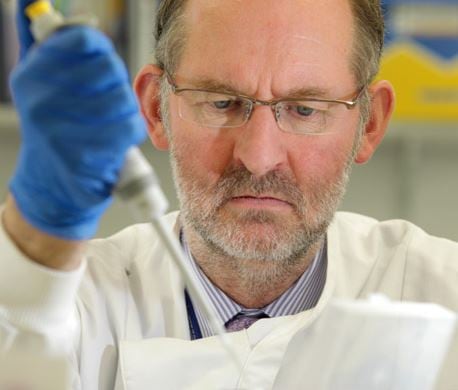The advent of General Data Protection Regulation (GDPR) in Europe brings into sharp focus the need for transparency and accountability, especially as big data is accepted as the next frontier for innovation, competition and productivity.
There’s no doubt that data accumulation and insight generation represents the cornerstone of PN success.
The concept of Big Data, for all the arguments of privacy, security, intellectual property, and even liability, appears to be the most adequately equipped to deal with the increasing volume and detail of information captured by enterprises.
“The emergence of big data approaches in achieving the goal of precision nutrition is happening already,” said John Mathers, director of the Human Nutrition Research Centre at Newcastle University.
“Such big data approaches will be used not only to interrogate/manage data from the use of “omics” approaches but also to interrogate and interpret “personal monitoring” using e.g. smart phone apps for tracking food intake, use of food photographs, body measurements e.g. blood pressure.”
Data-focused EU regulation

Mathers, a professor of human nutrition, raises a valid point in the process of data gathering. The differentiation of more behaviour-based or physiological data over genetic information asks further questions of the data’s usage, value, and future policies to best safeguard its management and access.
Recent EU regulation on general data protection (EU) 2016/679 went into force from May 2018, imposing stricter rules on data protection as well as inflicting harsher penalties in case of non-compliance.
According to Katia Merten-Lentz, partner at law firm Keller & Heckman, the EU data protection regulation classes genetic data as “sensitive data” and as such will benefit from a special status.
“….the processing of genetic data, biometric data for the purpose of uniquely identifying a natural person… shall be prohibited,” according to the document.
However, “Member States may maintain or introduce further conditions, including limitations, with regard to the processing of genetic data, biometric data or data concerning health.”
What this essentially means is that according to the new data protection regulation, data controllers will not require permission by national authorities.
However, they will have to meet the stricter security requirements and obligations; will have to be met, which could be interpreted as a regulatory obstacle for firms, but provide more consumer protection from potential abuse.
Finally, behaviour-based or physiological data collected via wearables and apps must also come under the same scrutiny to ensure its interpretation into nutritional recommendations stands up to inspection.
A number of medical apps and self-tests could be classed as medical devices and thus require validation. The problem is, this is still a grey area. Many apps now available to the public have not achieved medical device certification, and thus their quality remains varied.
Convincing users to adopt data-backed changes

The likes of personalised vitamin firm VITL, MultiplyLabs’s offerings that include personalised 3-D printed supplement pills and 100nuts’ AI-driven personalised meal planning, may well be in a better position to anticipate and respond to regulatory demands due to their agile organisational structure.
Larger companies established in the PN arena are by no means out of the running with an enviable finance stream, the latest data-management tools at their disposal and a network of collaborators on tap, the prospect of DSM, BASF and Johnson & Johnson making sizeable PN contributions remains a strong possibility.
“The secret sauce may lie in the power of smart collaboration models between start-ups and established companies,” said nutrition consultant firm Analyze and Realize (A&R).
“The main driver and ultimate goal will certainly be a perceived and sustained benefit for the consumers.”
This fluidity may also hold them in good stead as PN firms are also increasingly wrestling with another issue that asks consumers to let go of long-held beliefs or habits that PN dictates are no good health wise.
Dr Milka Sokolović, head of food and health science at the European Food Information Council (EUFIC) highlights this as more of an issue than generating the insights in the first place.
“It is possible that the successful tailoring of the individual advice - such that it leads to a change in dietary behaviour - is more of a challenge than the technological limitations of data processing,” she suggested.
“Nowadays, big data approaches also include analyses of microbiome, epigenome, but also of buying preferences (e.g. using customers’ loyalty cards when shopping for food), and other insights into behaviour.
“The technological development of nutrigenomics, proteomics, metabolomics was fast, raising high expectations within, but also outside the research field.”
Professor Mathers added, “From many perspectives, mining the data may be relatively straightforward since the approaches and algorithms are being used in other “big data” applications.”
“The real challenges may be conceptual i.e. in understanding how such big data can help motivate individuals to improve their diet (and lifestyle).”
What would the industry like to see?
Despite the gains made in trying to standardise the data-related issues of personalised nutrition, it appears the regulatory aspect is struggling to keep pace of this fast-moving industry.
According to Professor Mathers’ trust been a hot topic for several years (long before the Cambridge Analytica and Facebook debacle), with far more efforts needed to capture consumer confidence.
His co-authored article that recently appeared in the British Medical Journal, argues for regulation of PN services to protect the public and to provide health authorities with confidence in the quality of what is being offered.
“Most commercial PN interventions are provided directly to the consumer through the internet,” the paper said.
“The reliability of the evidence used by such companies is uncertain. The business has developed without regulatory oversight, defined standards, and consumer protection.
“To protect the public, advice should be based on robust scientific evidence. A framework for testing evidence for the scientific validity of nutrigenetic knowledge has been published.
“It is intended to be used for developing transparent and scientifically sound advice to the public founded on nutrigenetic tests.”

Eileen Gibney, associate professor at the School of Agriculture and Food Science at University College Dublin, refers to other data-heavy industries that PN could draw from, particularly in areas of security.
“There would need to a certainty of security, which would need to be regulated, but this would in line with the existing security around financial or other health data,” she said.
“Data from PN usually comes from the individual, so the individual would have to consent to the use and sharing of the data from one device to another server (for example) - and there are examples where this is probably already in place.
“Any data could be breached, so any data relating to an individual would need to be protected to the highest degree, following all (and probably) augmented security procedures. If we can assure this people won’t use the systems/facilities.”
What next?
The way forward appears to be obstructed with a mix of scientific, technical, legal and ethical hurdles that need to be overcome in order to reach the finishing line.
PN is by no means the finished article and like all young emerging industries will be subject to intense examination, not least as to how data is generated, handled, secured and accessed.
Recent history shows success depends greatly on the service or product’s effectiveness as well as costs with encouraging results triggering a “word-of-mouth effect” attracting more consumers and convince policy makers to relax their regulatory barriers.
